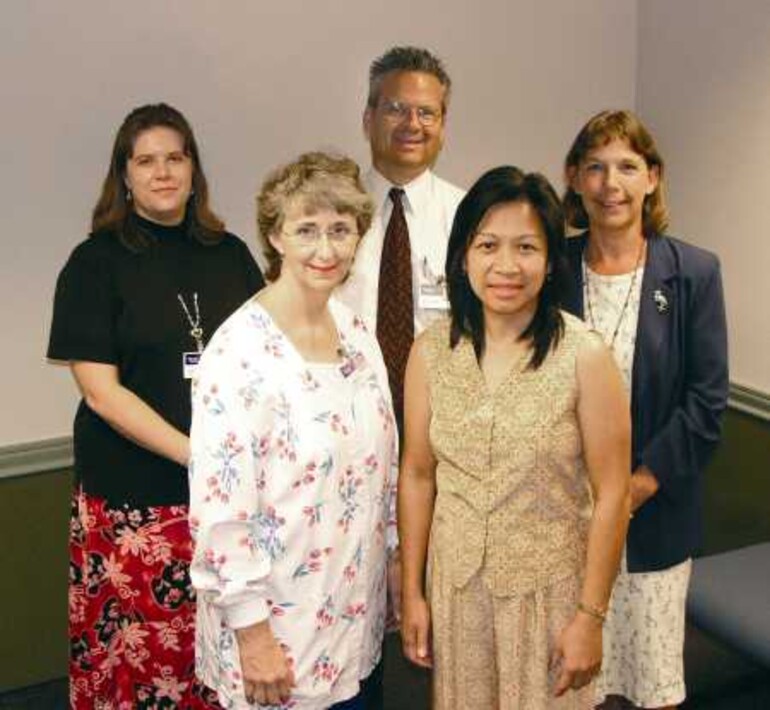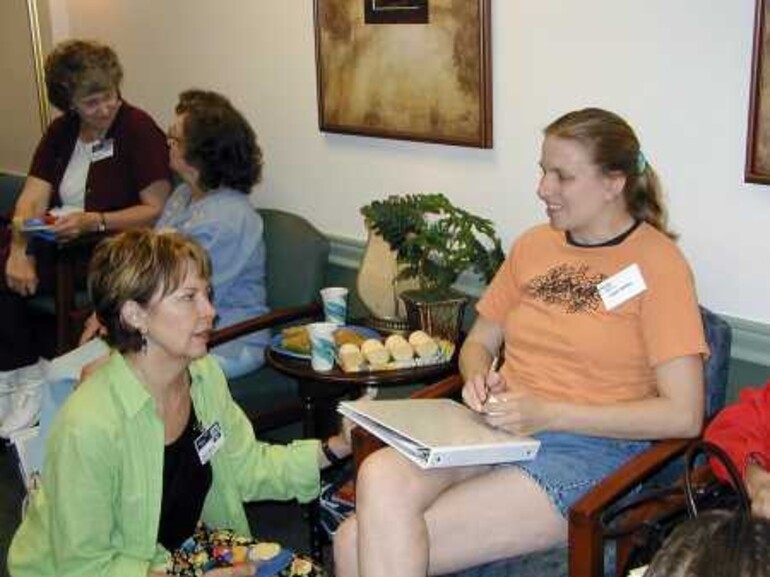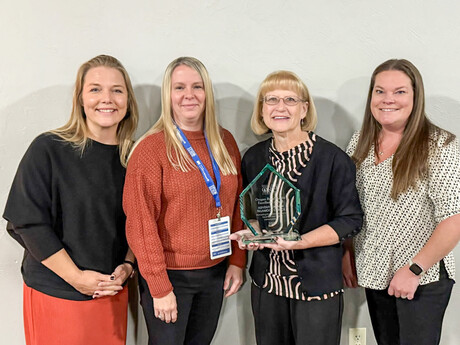Managing Diabetes An Empowering New Approach It’s a balmy Tuesday morning in Portland, Ore., and six people who’ve never met are about to sit down and talk about something they all have in common: diabetes. As part of a new program offered through Adventist Medical Center (AMC), the patients now have a chance to share their experiences with each other and receive valuable information and medical guidance on how best to manage their condition. In conjunction with the Oregon Diabetes Collaborative, AMC’s Southeast Main Family Practice recently launched a new group-visit program for patients with diabetes. Headed by Imelda Kelly, physician, the program includes all the features of a traditional doctor’s visit but gives patients the opportunity to interact and learn from others suffering from the same disease. In addition, the class provides educational material in a setting where it can be presented by a medical professional and discussed by participants. Kelly and her team have been working since October 2003 with the Oregon Medical Professional Review Organization (OMPRO) to improve care for patients with diabetes. The group visits are an outgrowth of this work, and AMC hopes that the program will be another way to address the special needs of patients with diabetes. “After the initial preparation, it was fun to see how it all came together,” said Kathy Newcombe, a registered nurse, of the first group visit held on June 15. “We plan to continue the sessions on a quarterly basis and hope that our patients will receive support and resources that will enable them to better manage diabetes.” The group visit program is the second Oregon Diabetes Collaborative in which AMC has participated. The first, in 2001, took place at the Clackamas and Rockwood clinics, where teams piloted changes in electronic medical records that include a pop-up dialog box for the caregiver to track patients’ indicators relative to good diabetes care. “People who learn how to manage their diabetes have a much higher quality of life,” said Kelly. “We’re committed to helping our patients do this by giving them the necessary tools and resources to better understand this disease.” As part of the current collaborative, patients and their caregivers report monthly on three joint measures important to good diabetes care: hemoglobin A1c levels (blood sugar control over three months), LDL (“bad” cholesterol) levels , and several self-management goals. While self-management goals—which consist of a variety of healthy lifestyle options patients choose to work on—can be difficult to stick to, they are key to successful management of chronic illnesses such as diabetes. According to Kelly, self-management goals have long been a part of her daily encounters with patients whether it is for diabetes, hypertension or any other disease. “Making patients aware of their conditions and giving them some responsibility in managing their disease is essential and a key part in chronic care.” For more than a century, Adventist health care has looked for innovative ways to promote wellness. AMC’s diabetes group visits are a new approach to help patients adopt a healthier lifestyle. For more information about the classes, please contact Joyce Caramella, R.N., quality improvement coordinator for Adventist Health Medical Group, at (503) 251-6266 ext. 7164.
Managing Diabetes
An Empowering New Approach
It’s a balmy Tuesday morning in Portland, Ore., and six people who’ve never met are about to sit down and talk about something they all have in common: diabetes. As part of a new program offered through Adventist Medical Center (AMC), the patients now have a chance to share their experiences with each other and receive valuable information and medical guidance on how best to manage their condition.
In conjunction with the Oregon Diabetes Collaborative, AMC’s Southeast Main Family Practice recently launched a new group-visit program for patients with diabetes. Headed by Imelda Kelly, physician, the program includes all the features of a traditional doctor’s visit but gives patients the opportunity to interact and learn from others suffering from the same disease. In addition, the class provides educational material in a setting where it can be presented by a medical professional and discussed by participants.
Kelly and her team have been working since October 2003 with the Oregon Medical Professional Review Organization (OMPRO) to improve care for patients with diabetes. The group visits are an outgrowth of this work, and AMC hopes that the program will be another way to address the special needs of patients with diabetes.
“After the initial preparation, it was fun to see how it all came together,” said Kathy Newcombe, a registered nurse, of the first group visit held on June 15. “We plan to continue the sessions on a quarterly basis and hope that our patients will receive support and resources that will enable them to better manage diabetes.”
The group visit program is the second Oregon Diabetes Collaborative in which AMC has participated. The first, in 2001, took place at the Clackamas and Rockwood clinics, where teams piloted changes in electronic medical records that include a pop-up dialog box for the caregiver to track patients’ indicators relative to good diabetes care.
“People who learn how to manage their diabetes have a much higher quality of life,” said Kelly. “We’re committed to helping our patients do this by giving them the necessary tools and resources to better understand this disease.”
As part of the current collaborative, patients and their caregivers report monthly on three joint measures important to good diabetes care: hemoglobin A1c levels (blood sugar control over three months), LDL (“bad” cholesterol) levels , and several self-management goals. While self-management goals—which consist of a variety of healthy lifestyle options patients choose to work on—can be difficult to stick to, they are key to successful management of chronic illnesses such as diabetes.
According to Kelly, self-management goals have long been a part of her daily encounters with patients whether it is for diabetes, hypertension or any other disease. “Making patients aware of their conditions and giving them some responsibility in managing their disease is essential and a key part in chronic care.”
For more than a century, Adventist health care has looked for innovative ways to promote wellness. AMC’s diabetes group visits are a new approach to help patients adopt a healthier lifestyle. For more information about the classes, please contact Joyce Caramella, R.N., quality improvement coordinator for Adventist Health Medical Group, at (503) 251-6266 ext. 7164.










